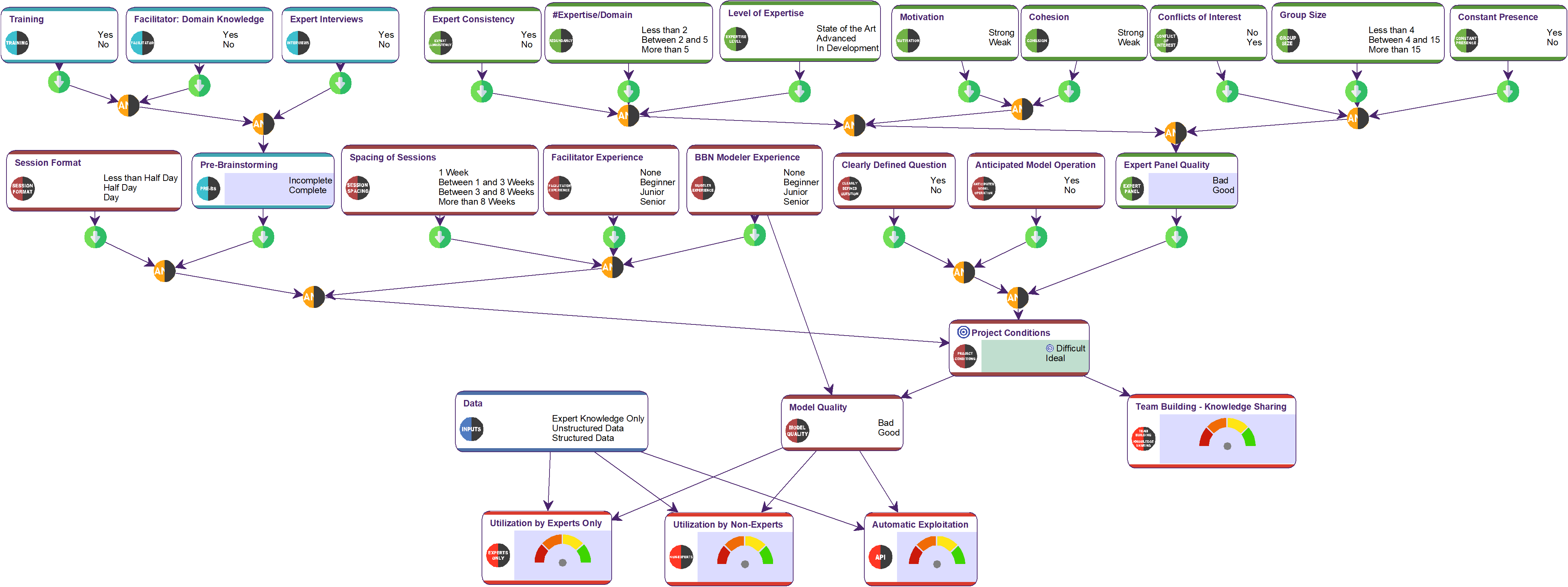A Meta-Model for Predicting the Quality of Knowledge Elicitation Sessions
Conference
64th ISI World Statistics Congress - Ottawa, Canada
Format: CPS Paper
Keywords: bayesian, elicitation, modeling
Session: CPS 18 - Statistical modelling I
Monday 17 July 4 p.m. - 5:25 p.m. (Canada/Eastern)
Abstract
Capitalizing on expert knowledge can be useful for a company. It can be for transmitting all the know-how on a given field, incorporating technical aspects for decision making, or building causal models for doing predictions. This knowledge can be represented through a Bayesian Network [1] to introduce uncertainty on the phenomenon, and, combined with Data, its performance can be improved. Elicitation is done thanks to sessions where experts works together to build models with a facilitator and a modeler. It is asked the experts to be available for a given amount of time, which can be large (several days) and with a risk that at the end of the sessions, they will not be able to have a satisfying tool. In the context of multi-project management, we propose a tool to assess the probability of success of Elicitation sessions on a given problem. This tool is obtained thanks to the Elicitation of a Bayesian Network [1] (meta-model), quantified with prior distributions.
After a brief description of the context (elicitation modeling prioritization), we explain how we were been able to elicit the meta-model.
First, a theoretical justification of the Bayesian network structure & nodes combination functions is done. Then, we detail the different dimensions and the output, followed by a demo of the app that has been generated with the model.
[1] Probabilistic Graphical Models: Principles and Techniques. D. Koller, and N. Friedman. Adaptive computation and machine learning MIT Press, (2009 )
Figures/Tables
META_MODEL


